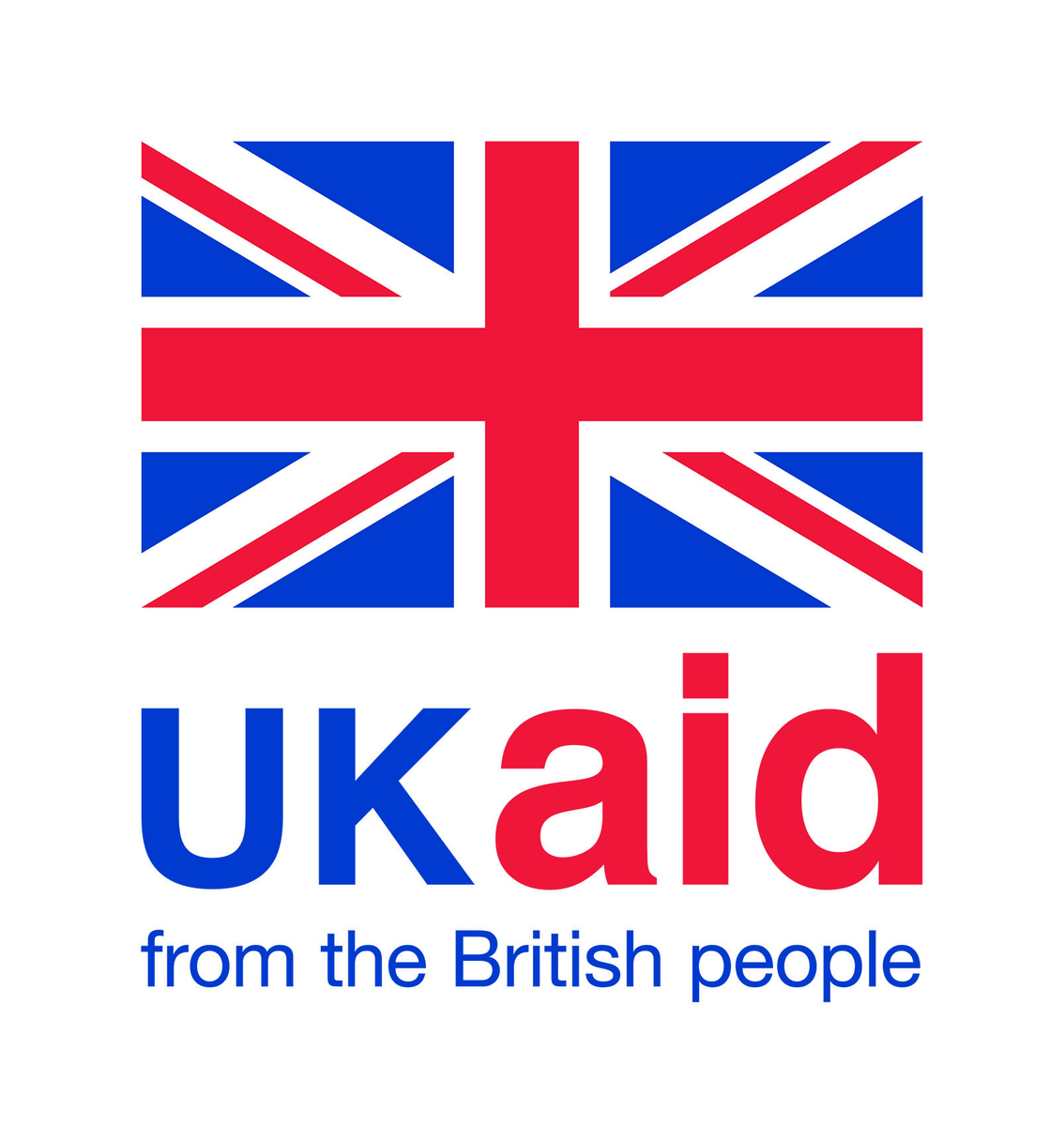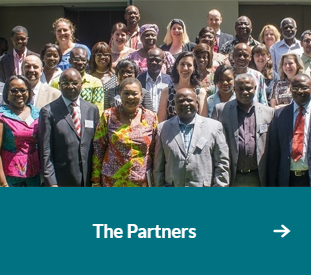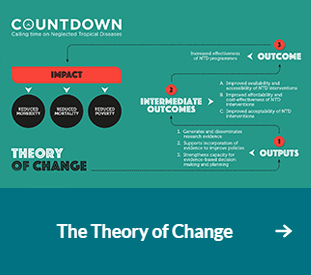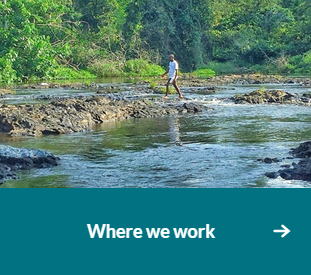COUNTDOWN is a 7-year programme of Neglected Tropical Disease (NTD) implementation research funded by UKAID within the UK Foreign, Commonwealth and Development Office (FCDO) - grant number 6407. COUNTDOWN brings together researchers from a range of backgrounds, policy makers, health care providers and implementation research specialists from Cameroon, Ghana, Liberia, Nigeria, the UK and the USA.
COUNTDOWN is a multidisciplinary research programme and is dedicated to investigating cost-effective, scaled-up and sustainable solutions that are necessary to control and eliminate the most common NTDs. This includes generating knowledge about the realities of increasing the reach of NTD treatment in different contexts. The programme produces evidence to contribute to reducing the morbidity, mortality and poverty associated with NTDs through increasing knowledge and capacity and this is in line with the World Health Organization 2020 (WHO) NTD Roadmap and the WHO NTD Roadmap 2030 (currently in draft).
COUNTDOWN’s strategy and vision
Our strategy is to increase the effectiveness of NTD programmes, with a focus on reaching poor and vulnerable groups and highlighting inequities, resulting in more people accessing appropriate interventions and receiving necessary treatments
Our vision is to reduce morbidity, mortality and poverty associated with neglected tropical diseases from application of new evidence for cost effective scale-up of sustained control and targeted elimination of disease in line with the WHO NTD Roadmap.
COUNTDOWN’s work
COUNTDOWN is a truly multidisciplinary research programme with disciplines ranging from lab scientists, parasitologists, health economists and qualitative researchers. Its focus is on conducting research to ensure that no one is left behind in Mass Drug Administration (MDA) campaigns and on developing NTD implementation research that can support health systems strengthening. COUNTDOWN has been supporting the scale-up of appropriate interventions in sub-Saharan Africa against NTDs amenable to preventive chemotherapy approaches. We will also look beyond MDA to look at how reach and support those suffering from NTDs. Research has shown that these groups are least likely to be able to access services and are very often missed by current NTD programmes. Equity, rights and responsiveness to gender and disability are core values that run throughout all COUNTDOWN research.
Some key learnings from COUNTDOWN so far on equity, access and delivery:
- Community Engagement: Involving community members in planning of activities such as MDA has a valuable effect on the uptake of drugs.
- Sensitisation is critical in building awareness and therefore acceptability
- Gender equity: Gender shapes access and the level of coverage through interactions at the household; Equity can be mainstreamed into routine NTD programme monitoring, and areas with identified equity issues can be investigated and targeted with tailored programme adaptations. Disaggregating all data can highlight gender differences and vital to promote a gender balance in all activities.
- Partnerships: Important to work with groups outside of the NTD programme such as gynaecologists for FGS and disability organisations on stigma and wellbeing.
- Trust: Capacity building is a core component of our research and one strategy we use to develop capacity and ownership is to ensure that stakeholders such as NTD programme staff and implementers are involved in the research teams as co researchers. This can make sure that the research is relevant and appropriate to the needs of the country. Community selection of CDDs promotes trust within the community and was a facilitator to acceptability.
- Responsiveness: Identifying gaps and involving community groups in addressing gaps such as using seasonal calendars to highlight optimal timing of MDA or location of MDA delivery.
- Community Health systems: Participatory approaches are used to strengthen health system capacity and to critically look at programme implementation from the perspective of the community and community level health implementers so that it is more responsive to their needs and contexts.






